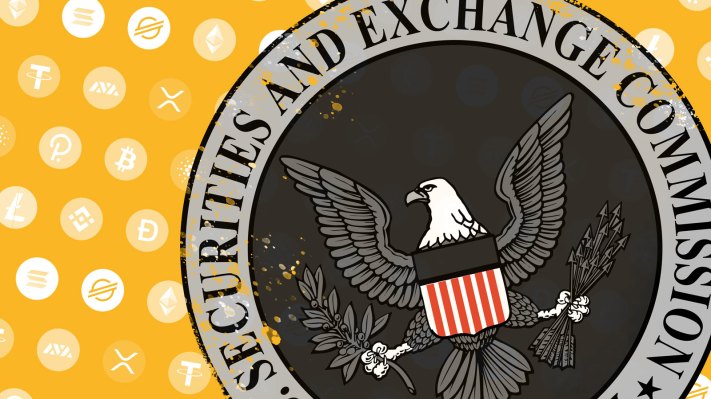If startups were looking for more specifics about crypto lending, new rules by which blank-check companies might have to abide, or whether the SEC views NFTs (non-fungible tokens) as securities, they didn’t get any this week from Erin Schneider, the regional director of the SEC’s powerful San Francisco office.
While speaking at TechCrunch Disrupt 2021, Schneider — whose team has helped wring settlements out of Theranos, Elon Musk and, more recently, the app analytics company App Annie — was clear from the outset that she was limited in what she could say.
She did, however, share insight into her personal thinking about a range of these issues, which, given her position, seems very much worth knowing (watch the full interview with Schneider below).
For starters, we asked Schneider about Coinbase’s now-shelved crypto lending product, and why BlockFi, a crypto lending company, has been grappling with state regulators that want it to stop offering its own interest-bearing products. (The SEC — a federal agency — put the kibosh on Coinbase’s plans.)
Schneider said startups should expect to abide by both federal regulations and state regulations, which can differ widely depending on the state. But she also used the question to answer something she wasn’t asked: Can financial products like Coinbase’s proposed offering confuse consumers? Her answer to this was, no surprise, resoundingly affirmative.
I do think over the last couple years, we’ve seen companies that started out calling [themselves] very disruptive, but they’re starting to add on features that look very similar to traditional financial structures, and especially in that sort of situation, the risk for investor confusion is high. [So] any regime, be it a state or a federal regime, is going to look very closely at how these companies are advertising their products and what regimes they are subject to, because I do think there’s potential for investor risks and investor confusion.
We also asked whether the digital collectibles known as NFTs are likely to be regulated as securities in the future. We pointed to what happened at OpenSea, whose director of product has admitted to buying NFTs that would later be promoted on the startup’s platform, presumably driving up interest and the value of said NFTs. Again, Schneider was circumspect, yet it was easy to discern from her answer that the SEC probably has some eventual regulations in mind here.
She said, “When we look at what is and is not a security, we’re going to look at the Howey test” for what constitutes a security. “Just from my own perspective and not speaking from the Commission’s perspective,” she continued, “I certainly have seen some NFTs that [didn’t] raise an eyebrow for me … But if things are going to be pooled together, and you’re going to be relying on the efforts of others, and investors are going to expect a profit, that’s something that I would take a closer look at. That doesn’t mean that I’m going to decide that it is a security. I think it just is case by case. It is a growing [area of interest]; we are going to pay attention to it. [But] I can’t tell you today whether we will or will not bring an NFT case in the future.”
As for how startups should conduct themselves in the meantime, Schneider suggested that some might benefit from focusing less on growth and more on best practices if they want to stay out of the SEC’s crosshairs.
“What I see happening a lot of times with these new companies is that they put all their resources into growth and expansion and growth and market share, and they don’t put the same resources into getting lawyers and getting compliance folks,” Schneider said. “I completely understand that is a choice. But I think they’re ultimately doing themselves a disservice at the end of the day by not having good compliance people or good lawyers from the ground floor who can actually analyze the products for [the founders] and get advice from other people.
“I can’t stress enough how companies would be better off and probably avoid our office investigating them had they invested early on in just basic compliance structures.”
For more from our chat, including whether Schneider thinks SPACs need to be marketed or structured any differently, and why it would probably be a good idea for fintech startups without bank charters to stop calling themselves “banks,” check out the full interview.

